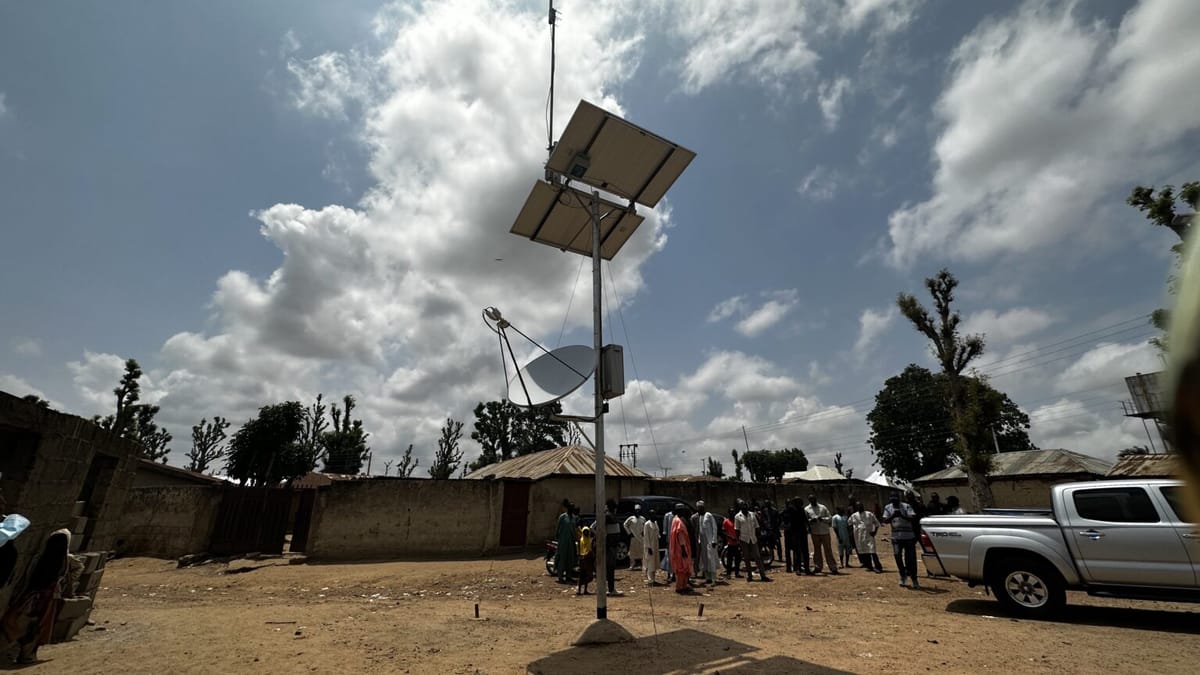Top telcos shape to rival Starlink in Africa's costly internet capital
Local MNOs are partnering with rival satellite services to rival Elon Musk's

In Zimbabwe, the entry of Starlink, Elon Musk’s disruptive satellite internet platform, is causing a stir. After getting a license two months back, the service plans to launch in the third quarter of 2024, pushing local internet providers to rethink.
Zimbabwe’s internet has long been expensive and limited in coverage. Average data costs are higher compared to neighboring countries. It far exceeds the $1.81 for 1GB average in South Africa, $0.38 in Malawi, and $0.78 in Mozambique. As of 2023, it had Africa’s most expensive mobile internet, with an average of $43.75.
Starlink’s new service promises fast internet through satellites that orbit closer to Earth, which, for the right reasons, has many local providers worried. The service’s arrival is no doubt going to shake up the market, prompting companies to act in its wake. To be fair, they must to stay relevant.
To prep for the challenge, TelOne, a state-owned provider, has gotten in bed with Eutelsat OneWeb. This British firm, part of the French Eutelsat Group, runs a network of low Earth orbit satellites that provide faster, more reliable internet compared to older technology. TelOne will use these satellites to offer high-speed internet to its customers.
TelOne’s CEO, Lawrence Nkala, spoke about the deal after their annual meeting last Friday. He emphasized the importance of adopting new technology to keep up with competition and improve service. The service will be available around the same time as Starlink’s launch.
“Technology is here to stay and with the coming of low-earth orbit (OBT) in the country [Starlink], affordability of the internet is what we will want to look at,” TelOne chief executive officer Lawrence Nkala told journalists during a press briefing.
Liquid Intelligent Technologies, another major player, is also preparing for the showdown. They have likewise partnered with OneWeb to expand internet access to remote areas. This partnership will help Liquid offer better connectivity, using both low Earth orbit and traditional satellites.
The entry of Starlink has already led to lower prices from local internet providers. TelOne’s deal with Eutelsat OneWeb is a response to this, aiming to offer competitive services. By reselling Eutelsat’s satellite internet, TelOne hopes to attract customers and provide better internet at lower prices.
For consumers, this competition could mean lower costs and improved connectivity services. The new satellite services are expected to reduce costs and enhance service quality. IMC Communications, its official partner in the market, says kits will cost $650. To use it, Zimbabweans will pay $38 monthly for 50Mbps, $45 for 100Mbps, and $85 for 1000Mbps.
However, Liquid Chief Commercial Officer, Lorreta Songola has previously said (a week ago) that their company is not threatened Starlink has begun making inraods, and [that] they are “only adjusting their prices due to market forces that have seen a stable ZiG currency”.
TelOne plans to offer flexible pricing and improve to stay competitive. This move is part of a larger trend where traditional internet providers are adopting satellite technology to meet market demands. As the changes unfold, the focus will be on how well companies integrate these new technologies and serve their customers.
Overall, the competition between Starlink and local MNOs would go a long way in reshaping the internet landscape. This shift is expected to bring improvements in service and lower costs for consumers. The developments reflect how global and local companies are adjusting to offer better internet access in one of Africa’s most challenging markets.






